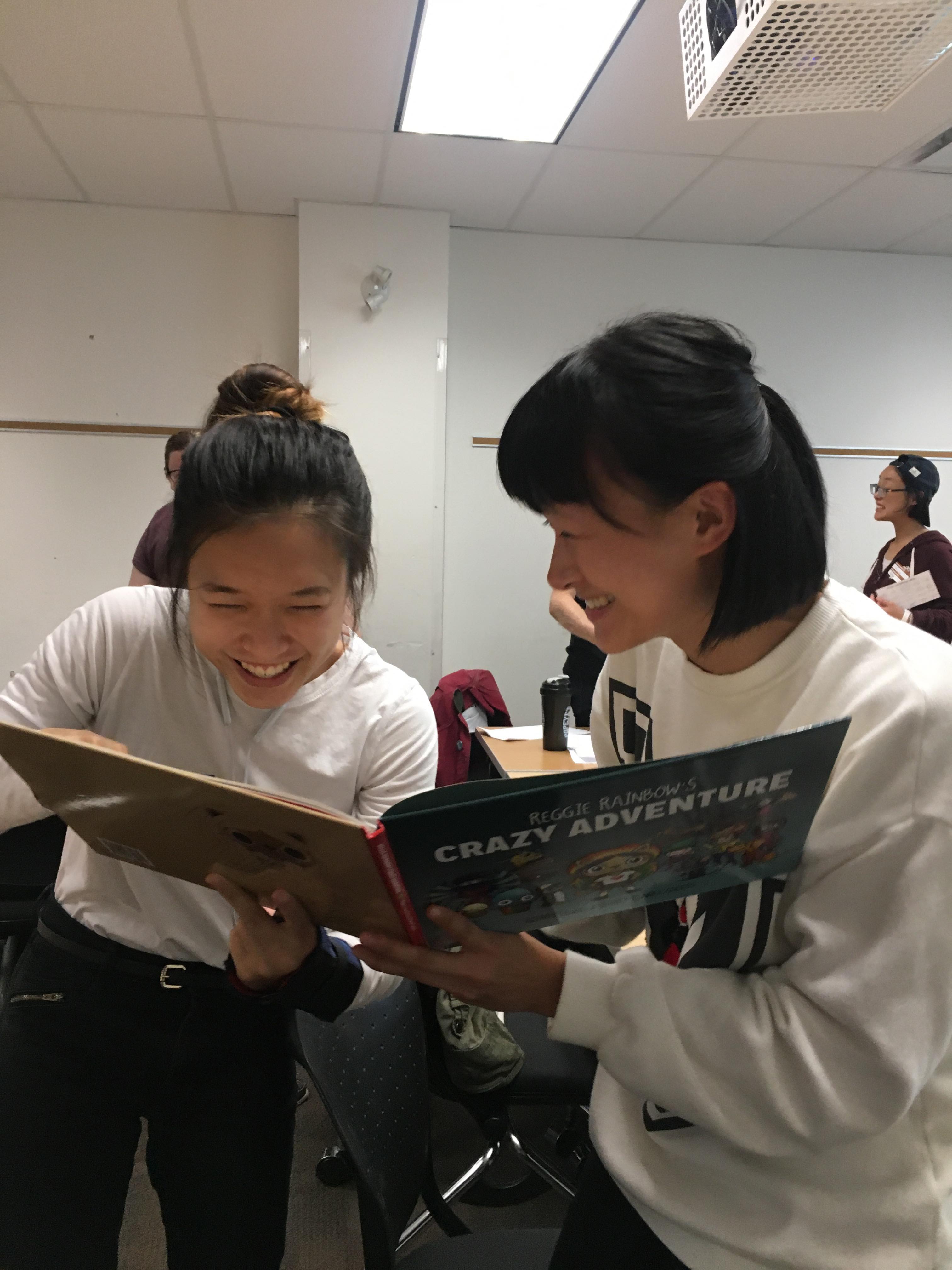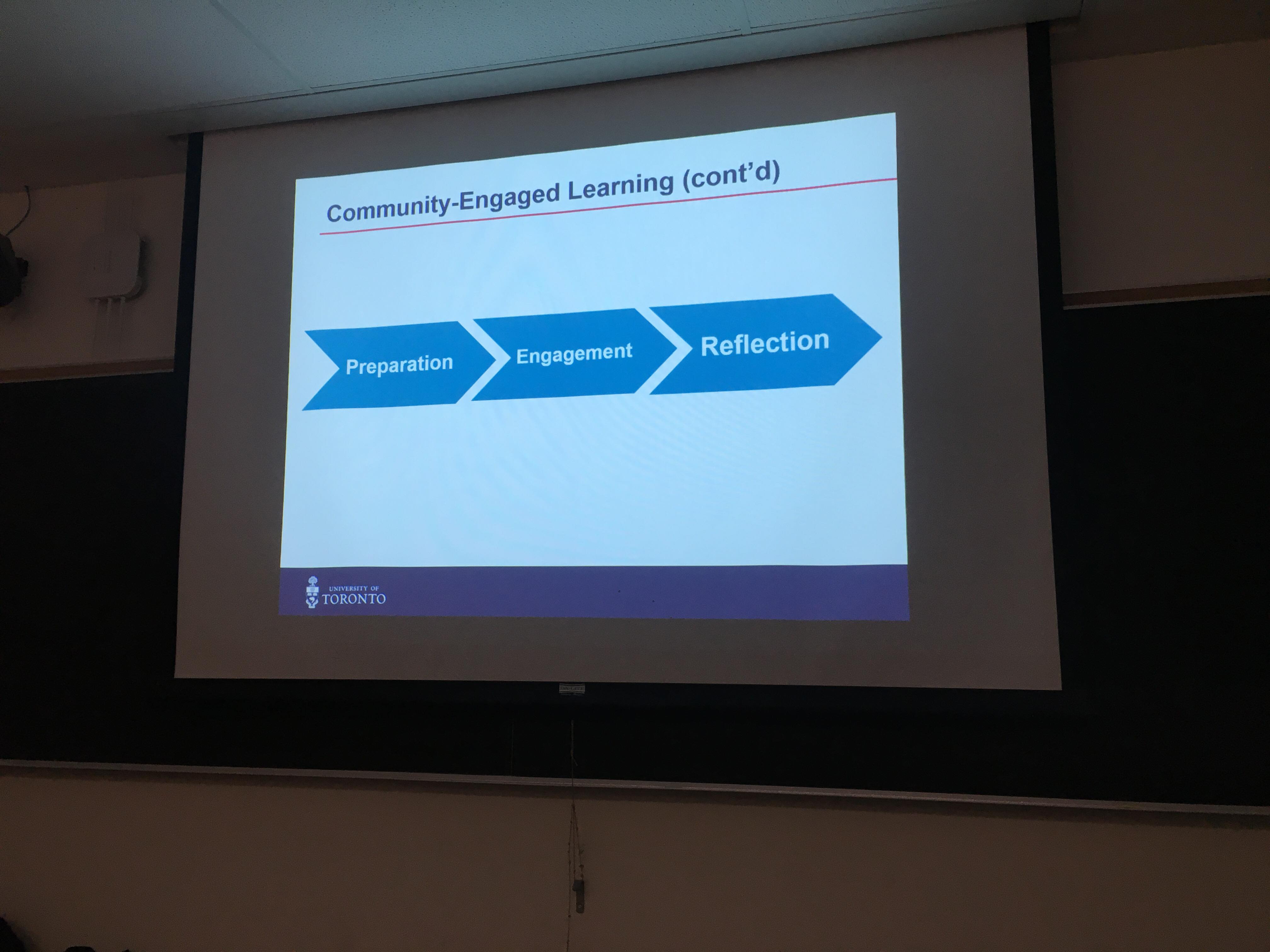Written by: Vivian Li
On September 13, 2019, I attended the Community Action Projects (CAPs) Orientation for Story Planet, an organization that combines literacy, art, and drama to engage children as well as youth in under-resourced schools. CAPs are opportunities for students to volunteer at and learn from non-profit organizations as well as to explore new communities, potential career paths, and to develop communication treatment skills. Although I came in wanting to meet new people and to understand Story Planet’s goals, I ended up leaving with an interesting model, a cool new icebreaker idea, and more insight on reflection!
We started off the orientation with a quick game of “Human Bingo,” a way to get to know each other through statements (ex. “I love Samoyeds”), which were laid out as squares on a 4×5 grid. Afterwards, we discussed what community engaged learning was, talked about the difference between equity and equality, and chatted with a representative from Story Planet.
 READING ABOUT CRAZY ADVENTURES IN STORY PLANET
READING ABOUT CRAZY ADVENTURES IN STORY PLANETBy the way, if you’re interested in checking out more CAPs opportunities, including the SciHigh program at Mount Sinai Hospital and the City Adult Learning Centre with the Toronto District School Board, you can register on the CCP website (the next session is October 25, 5 – 7 p.m)!
I learned a lot in the two hours, but here are my top three takeaways from the experience:
- The importance of asset-based community development when interacting with organizations. For instance, challenging us (the outsiders) to view a community in terms of its strengths rather than its weaknesses.
 STEPS TO LEARNING AND ENGAGING WITH COMMUNITIES
STEPS TO LEARNING AND ENGAGING WITH COMMUNITIES- The Derpy Dog exercise! The goal of the activity was to promote a growth mindset, to push past any innate resistance, and essentially draw a derpy dog in 30 seconds. After we finished, we passed our papers to a student to our left and drew another dog. Then, we passed the papers again and drew a human owner. It was a little stressful as the facilitator started counting down and had a timer! I definitely had trouble drawing the body of my dogs but it was fun to make a narrative for the pets and the owner. I named them Boopy, Choopy, and Jimmy respectively. Unfortunately, I don’t have photos as they’re quite shy!
 CHALLENGING ASSUMPTIONS, WORKING OUT A WIN-WIN SITUATION FOR BOTH PARTIES
CHALLENGING ASSUMPTIONS, WORKING OUT A WIN-WIN SITUATION FOR BOTH PARTIES- From the reflection portion, this quote from John Dewey really struck me: “We do not learn from experience, we learn from reflecting on experience.” It prompted me to reflect on the reason I was taking my courses, as well as to think about why I wish to become a writer and musician. Other questions started to come up: how can what I’m doing right now help get me where I want to go? And what skills do I want to learn from this experience and from my extracurriculars?
My goals this year as a potential volunteer at Story Planet are to become more verbally communicative, practice my artistic abilities, and learn to be more patient. As well, I wish to try facilitating (small!) workshops and engage with drama and playwriting. In essence, I’m really looking forward to my next steps with Story Planet and to future collaborations with the community!
